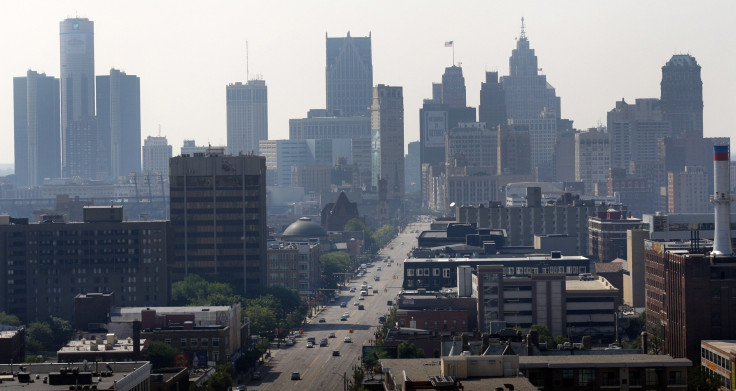Analysis: Wall Street To Benefit From Detroit's Bankruptcy, The Inevitable Upshot Of Six Decades Of Mistakes

“Now is our opportunity to stop 60 years of decline,” Michigan Gov. Rick Snyder said at a press conference Friday while announcing that Detroit was officially bankrupt with debt totaling $18 billion.
Many see the city’s filing for federal bankruptcy protection as a way to reinvent a municipality that was once the automotive powerhouse of the U.S., churning out millions of cars every year for the likes of the General Motors Co. (NYSE:GM) and the Ford Motor Co. (NYSE:F). Since the 1950s, however, the population has more than halved from 1.8 million to just 700,000. Tens of thousands of decrepit and abandoned homes litter the landscape, many of them uninhabitable.
A number of issues exacerbated the problems the city is experiencing today, with white flight and widespread unemployment, to say nothing of the city’s inability to collect taxes, among the biggest. In February, the Detroit News reported about 47 percent of the city’s taxable parcels were delinquent on their 2011 tax bills, resulting in a $246.5 million hole in the city’s receipts. But another root cause of the Motor City’s collapse is the decades-long pattern of making impossibly extravagant pension promises to labor unions in the public sector.
As Detroit hits rock bottom, with a dollar figure far exceeding that related to the Jefferson County, Ala., bankruptcy of 2011, it appears the vultures are already swooping down to feast on the leftovers.
Frank J. Popper, a professor at the Bloustein School of Planning and Public Policy at Rutgers University, said he believes banks may be speculatively buying up long-vacated land with the hope that it gains value in the long run. “Banks have a great history by making money out of other people’s misery,” Popper said.
Land banking, as it is sometimes called, is nothing new to America. In the past, people invested in large chunks of California before its cities’ suburbs expanded, earning huge profits. Public figures such as Bob Hope and Donald Trump both made millions of dollars by employing such practices.
Besides possible land banking, banks have been -- and will be -- reaping huge profits in debt-restructuring fees, and, as added salt in the wound of a city in crisis, Republicans have ensured these same banks will be paid in full as Detroit works to get out from under its crushing debt load.
According to Bloomberg News, Detroit had to take bank loans just to keep city street lights on, and in some areas the street lighting was turned off altogether. Units of banks such as Bank of America Corp. (NYSE:BAC), JPMorgan Chase & Co. (NYSE:JPM) and UBS AG (NYSE:UBS) have enabled about $3.7 billion of city bond issues to cover debt payments, deficits and pension shortfalls since 2005.
Although it has been rumored on various blogs that Detroit’s emergency manager Kevyn Orr has told creditors they might get 10 cents on the dollar, Michigan’s governor has said he’s not sure whether some Detroit creditors will ever be paid.
This could be a mixed message for those looking to take advantage and buy up the debt at a lower price, hoping to recoup the stated 10 cents on each dollar. They could be taking a risk that would earn them nothing in return.
© Copyright IBTimes 2024. All rights reserved.






















